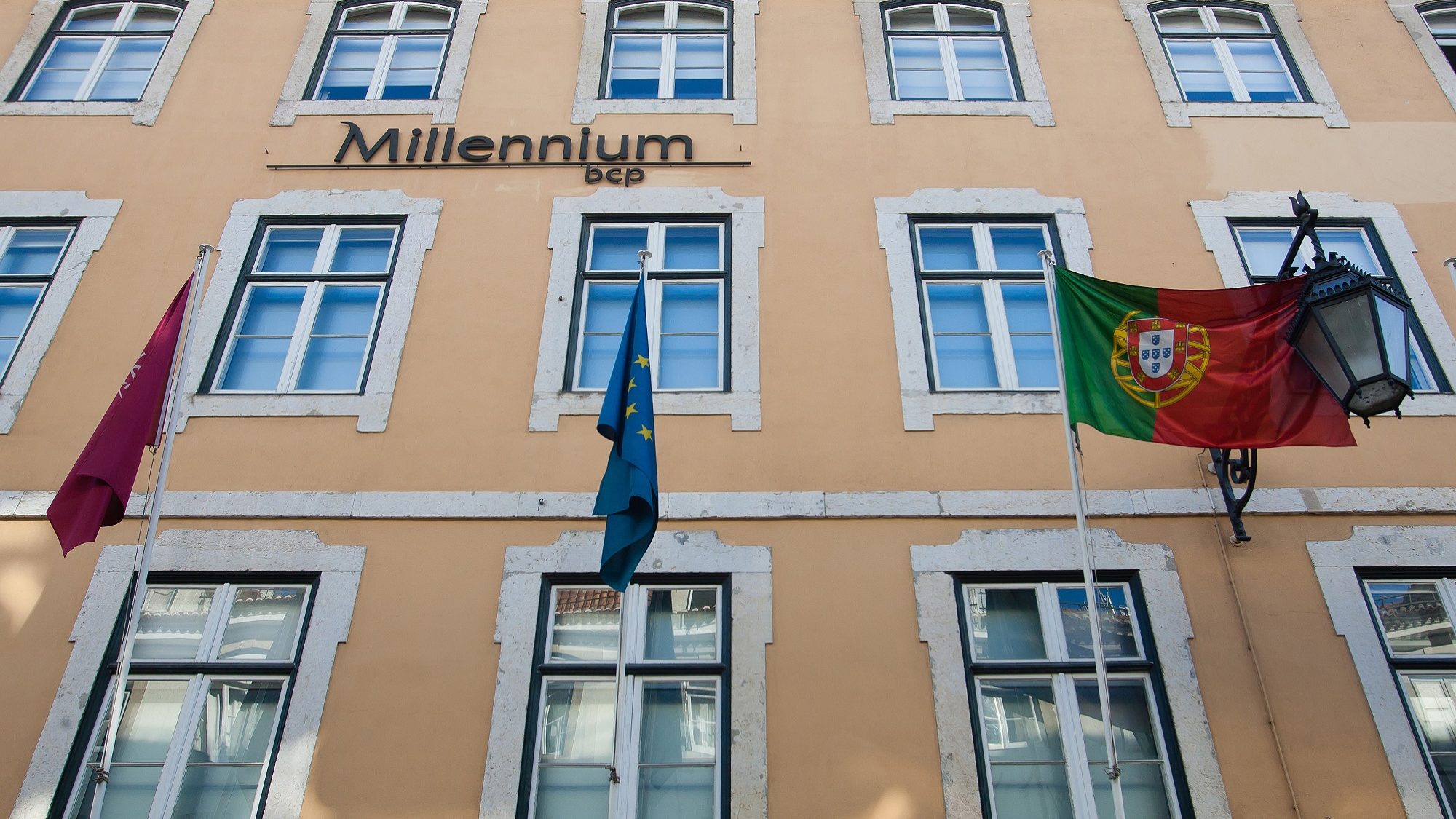‘Scenario of greater uncertainty and interest rate volatility implies prudent risk management,’ says BCP CFO
Miguel Bragança underlines that the current context requires greater care in risk management by BCP and clients, but can also generate opportunities.
Miguel Bragança is nominated for best CFO in investor relations in the 34th edition of the Investor Relations and Governance Awards (IRGAwards), an initiative of the consultancy firm Deloitte. In a written reply to questions sent by ECO, the responsible person points out that the “scenario of greater uncertainty and interest rate volatility implies prudent risk management.”
He graduated in Business Administration and Management from Católica Lisbon School, and took his MBA at INSEAD, having received the Henry Ford II award, given to students with the highest final average grade. Throughout his career he has worked for several financial institutions, such as Citibank Portugal and Santander Totta. He joined the board of directors of BCP in 2012.
Miguel Bragança says it is important “to have the courage and humility to change positions when necessary”. This “necessarily implies the ability to listen, above all, to evidence that may not confirm our previous views”.
What challenges is inflation creating for the business and how is Millennium BCP responding?
Portuguese GDP growth in the first quarter of 2022 was 2.6% quarter-on-quarter and 11.9% year-on-year, which represents significant growth especially when compared with other European countries, even bringing GDP to levels higher than those recorded in the pre-pandemic period.
The favourable evolution of the Portuguese economy results in part from the dynamism of private consumption after a period of retraction associated with the increase in the levels of savings during the critical periods of the pandemic (2020 and 2021), the reduced unemployment rate, the level of investment, the positive contribution of exports associated mainly with tourism.
BCP is today stronger and better prepared to face challenges, given the improved quality of its balance sheet and the levels of capital and liquidity. It was well demonstrated during the pandemic crisis how this strength allowed BCP to play a key role in supporting Portuguese households and companies, both in their efforts to adapt to the crisis and to prepare for new challenges.
The increase in inflation associated with the disruption of value chains and the rise in energy prices, especially energy, creates a particular need for our clients to adapt their business model and manage their risks. BCP is a privileged partner to offer risk management solutions to its customers, whether in the coverage of raw material costs, or in supporting the development of new value chains through its international trade solutions, or in the management of more directly financial risks, such as foreign exchange, interest rate and liquidity risks. Additionally, BCP has a strong added value in supporting investment that allows the adaptation of the business model, namely the execution of projects that can benefit most from the new energy and digital paradigm.
Inflation has also brought a new cycle of rising interest rates. What will be Millennium BCP’s response to this new environment?
As mentioned before, this scenario of greater uncertainty and interest rate volatility implies a prudent risk management, both for BCP and its customers. The offer of competitive long-term fixed-rate financing solutions for individuals, the partnership attitude in the design of financing solutions for companies that benefit from the different European support and the offer of structured solutions for interest rate risk hedging are clearly areas of focus for BCP. Especially in relation to customers more exposed to financial variables and to investors, there is also a special care in monitoring the evolution of markets allowing them to benefit from opportunities when they arise. BCP’s culture that emphasises relationship and partnership banking in risk management and commitment to responsiveness and organisational agility is critical in order to meet the needs of clients, both borrowers and investors.
“Shaping human lives through sustainability and technology” was the theme chosen for this year’s edition of the IRGAwards, in an invitation to reflect on the way we function as a society and the legacy we will leave to future generations. What is urgent to change so that we leave a better legacy to the next generations?
We must all be aware that the current development model of the global economy is not sustainable. The strong growth in living standards that has occurred since the industrial revolution has only been made possible by technology and the energy intensity of production. However, the current sources of this energy consumption are finite, so in order to maintain or ideally continue to increase the standard of living of the population, it is necessary to convert the energy production model into one that does not consume such limited resources. Thus, there is an issue at the level of the global economy which involves using technology to find sustainable ways of producing energy and continuing to improve the standard of living of the population despite the likely lower energy intensity of production.
Additionally, in Portugal’s case, we have the moral imperative to leave future generations a growth model that improves their standard of living, which has not happened satisfactorily in recent decades. The change in the technological and energy paradigm may be an opportunity for us to achieve this because, by definition, success is less dependent on the comparative advantages of the past. So let there be a sense of urgency, social consensus, initiative and will to do it, together and as a society.
From your experience as a manager, what do you consider the most valuable lesson to address the current moment?
Especially in times of uncertainty, we should bear in mind Darwin’s famous quote, according to which it is not the strongest species that survives, but the one that best adapts to change. Without neglecting the importance of planning, even as an exercise for strategic thinking, as managers we must be very “tuned in” to changes in the environment and have the courage and humility to change positions when necessary. This necessarily implies the ability to listen above all to evidence that may not confirm our a priori views. In situations of uncertainty such as the current one, I would also draw attention to the importance of developing an organisational culture of genuine teamwork, focused on the search for solutions, which is particularly effective when there are diverse and multidisciplinary perspectives, which necessarily contribute to the quality of the decision and to the success of the execution.


